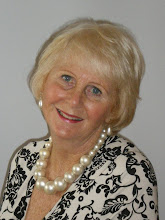1. NO KNICKERS – A light hearted look at Tudor life Not as naughty as it sounds! Jenny contrasts the lives of the wealthy Tudor people with the lives of the poor. She looks at living conditions, childbirth, clothes, personal hygiene, illnesses and cures. It is a talk that surprises, delights and amuses.
 2. FROM FIELD TO FEAST Tudor food is a fascinating subject and far more varied than people might imagine. From sowing and planting to cooking and eating Jenny talks about recipes, magnificent banquets, table manners and the courtly behaviour of the rich, whilst not forgetting that most of the population was poor. What did they eat and, more importantly, how did they survive the long winter days?
2. FROM FIELD TO FEAST Tudor food is a fascinating subject and far more varied than people might imagine. From sowing and planting to cooking and eating Jenny talks about recipes, magnificent banquets, table manners and the courtly behaviour of the rich, whilst not forgetting that most of the population was poor. What did they eat and, more importantly, how did they survive the long winter days?  3. CRIME AND PUNISHMENT IN TUDOR ENGLAND WITHOUT THE GRISLY BITS We can easily imagine the horror of being hanged, drawn and quartered so this talk looks at the 'lighter' side of the Tudor underworld. The lives of the card cheats, the coney catchers, the cutpurses, the charm sellers, and other ingenious criminals. Their punishments are explained without recourse to the tales of the dungeons, so no-one needs to fear a disturbed night’s sleep.
3. CRIME AND PUNISHMENT IN TUDOR ENGLAND WITHOUT THE GRISLY BITS We can easily imagine the horror of being hanged, drawn and quartered so this talk looks at the 'lighter' side of the Tudor underworld. The lives of the card cheats, the coney catchers, the cutpurses, the charm sellers, and other ingenious criminals. Their punishments are explained without recourse to the tales of the dungeons, so no-one needs to fear a disturbed night’s sleep.
4. THE MURDERER, THE MAGICIAN AND THE PIRATE Tudor portraits are colourful, interesting and delightful to look at – but what about the stories behind the faces? What kind of lives did they lead, who were their friends and enemies and how did they meet their maker? Those listening will never again be able to look at portraits in the same way as they recall these stories caught in a painted moment of time.
 5. A VOYAGE TO AMERICA - COURAGEOUS OR CRAZY? The brave and foolhardy Pilgrim Fathers’ story begins in 1606. Find out why they left the security of this country to live in an unknown world. Learn the tales of those crammed aboard the Mayflower, the horrors of the journey, how they coped when they landed, their adjustment to a new land and how they traded with the local Indians. This story reminds us of the simple but challenging beginnings of the United States of America.
5. A VOYAGE TO AMERICA - COURAGEOUS OR CRAZY? The brave and foolhardy Pilgrim Fathers’ story begins in 1606. Find out why they left the security of this country to live in an unknown world. Learn the tales of those crammed aboard the Mayflower, the horrors of the journey, how they coped when they landed, their adjustment to a new land and how they traded with the local Indians. This story reminds us of the simple but challenging beginnings of the United States of America. 



